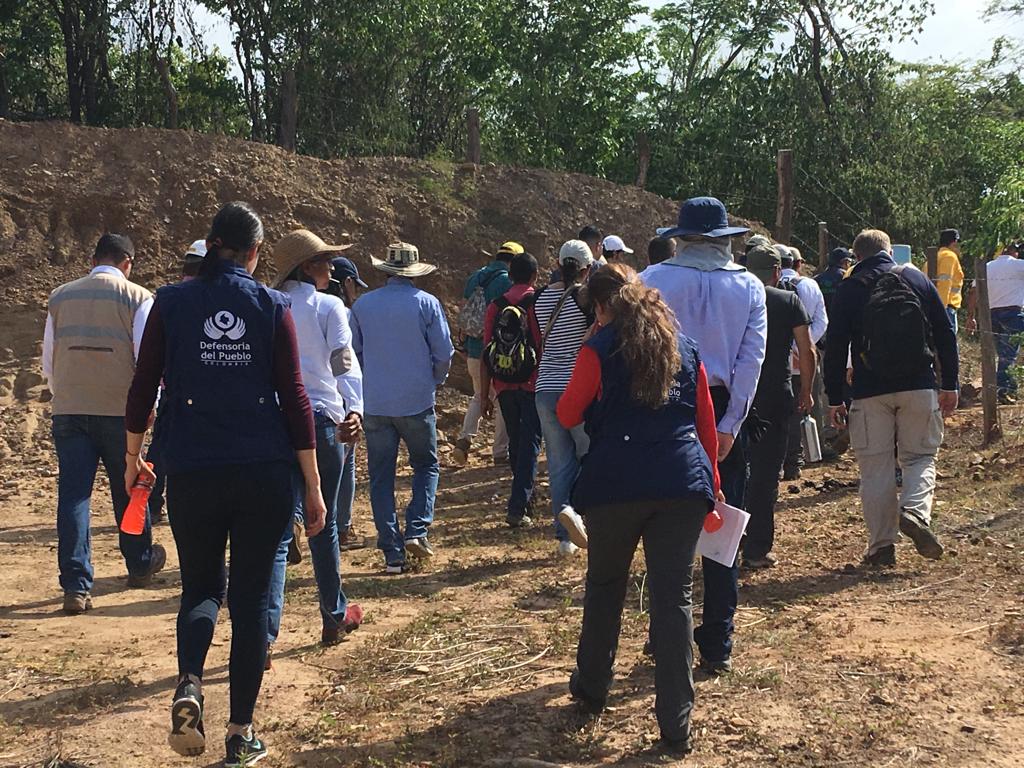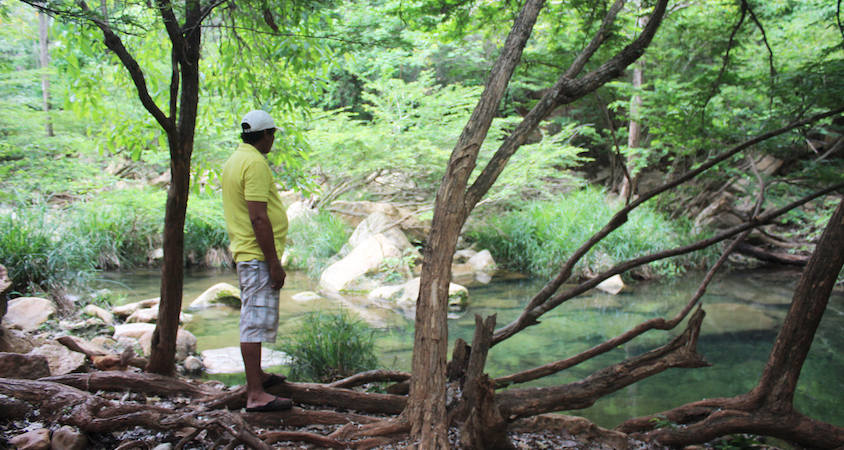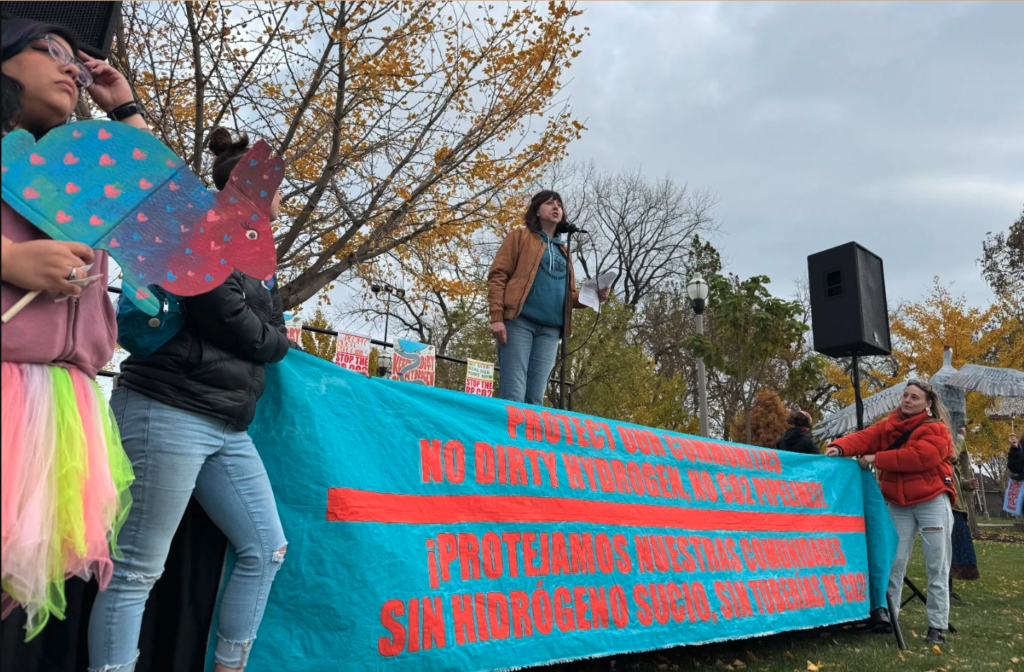By Sebastian Ordoñez, Senior International Programmes Officer at War on Want
The Cerrejón Coal Company, a subsidiary of three UK-based mining giants, has diverted the Bruno River in La Guajira, Colombia, to extract 35 million tonnes of coal destined for Europe, North America and Asia. This is both illegal, as it contravenes a Constitutional Court ruling ordering a stop to the diversion, and wrong. It represents forty years of systemic harm perpetuated by Cerrejón on the communities of La Guajira, their territories, and our planet.
For as long as the company has operated in the area, the local population of indigenous Wayuu, Afro-descendent peoples, and campesinxs (agricultural workers), have resisted the mine’s encroachment on their land.
In 2016, three Wayuu indigenous communities and their allies took legal action against the planned expansion of the mine into the Bruno River. In 2017, the court ruled in their favour.
The decision of the court was not published in its entirety until early in 2019 when the works were already nearly finished. Cerrejón and the relevant government bodies have entirely disregarded the court’s ruling.
Carmen Sierra, a school teacher from El Rocio, a small community bordering the Bruno River told us about her community’s struggle:
“Cerrejón decided to divert the Bruno stream without consulting any of the surrounding communities, like ours, which is 30 metres away from the stream and which depends directly on its waters.
“Water for us is everything; water and land are the most important things for our community. Without water, we don’t have an economy”
“The region is going through a humanitarian crisis due to lack of access to water, leading to the deaths of many indigenous children. Meanwhile, Cerrejón continues to divert and affect the little sources of water we have left.”
Cerrejón uses over 24 million litres of each day, enough to supply 150 000 thousand people regions with no water scarcity. To source its own water, the company has dried, dammed, or diverted 17 bodies of water, at the expense of local populations.
Blas Sierra is a Wayuu community leader and farmer, whose family has lived in the community of El Rocio for generations. Blas recalled how Cerrejón first showed up on his land, determined to gain access the Bruno Stream. Blas said he has been the subject of multiple violent attacks and threats, including shots fired at his home.
“Before the company became interested in accessing the Bruno Stream, we had never had any problems. When the company wanted to access the coal under it, the threats started. They came here and said that if we didn’t leave this area, they would call the authorities and the police to kick us out.”
Cerrejon has publicly condemned the threats to the Wayuu community, but the company’s action to divert the Bruno stream still represents a threat to ecosystems and people who live there. The health of the river affects the surrounding dry tropical forest – one of the most threatened ecosystems in Colombia. But Blas said the company disregards this fact.
“If you ask a Cerrejon executive, they will say our river is dry and that it has no life. But this river represents life for thousands of people in our communities. It is life because it provides the water we consume. We don’t get water from the municipality; we don’t get water from the company; we get water from our river.”
Leobardo Sierra, Blas’ brother and a respected community leader in El Rocio, who has seen first-hand the impact that the river diversion has had on deforestation, explained how the Court’s sentence rests on communities’ right to participate in the negotiations.
“The company thought they could simply go into [the negotiating meeting] and breeze through the points of the sentence without consulting us. It was disastrous for them because they couldn’t deny us the opportunity to participate, given the mandate of the court. As soon as that started, we were able to challenge their points directly.
“We made it clear that if [the company] remove us from our [territory], the stream will be lost, because it is us who defend it. If you lose the stream, you will lose the Rancheria River, and then you will have no life in La Guajira.”
 On multiple occasions the executives of the three companies behind Cerrejon have blamed the region’s problems of drought, malnutrition and poverty on climate change, without acknowledging the company’s role in driving the change. As Leobardo pointed out:
On multiple occasions the executives of the three companies behind Cerrejon have blamed the region’s problems of drought, malnutrition and poverty on climate change, without acknowledging the company’s role in driving the change. As Leobardo pointed out:
“Today, Cerrejon says that climate change is the cause for drought in La Guajira, and that may be true, but the company has played a direct role in affecting the climate here. They’ve deforested a lot of our tropical dry forest – which has worsened the crisis; we have lost our lands for our farming and fishing. We previously only depended on ourselves, now we depend on someone else.”
The Wayuu are characterised by their ability to make sense of the world and heal it through dreams. The traditional healers are women called ouutsü, who use dreams to connect with the spirits for the well-being of the members in their community. Many of the communities’ dreamers say they’ve had their ability to dream severely impacted by coal dust and noise pollution, but Leobardo continues to dream a vision for La Guajira.
“I hope one day we can return to what we were: farmers and growers who looked after our land instinctively, because our land gave us everything. There have always been diverse and changing climates, but we used to work with these changes. We knew and understood the cycles, we would cultivate based on that knowledge.
“Today we are rich, they say. They say La Guajira is the richest region of Colombia because of the wealth of the Cerrejón mine, but we don’t see any of that wealth. Before, maybe we were poor in their eyes, but at least everyone in the region could eat and had the opportunity to a livelihood. We have to go back to our agricultural vocation – that is what I want to leave for our families.”
In-line image: A verification mission to the Arroyo Bruno, 2019. Photo credit: Diana Salazar. Main image: The Arroyo Bruno at El Rocio community. Photo credit: Leyli Horna
Subscribe to our newsletter
Stay up to date with DeSmog news and alerts







